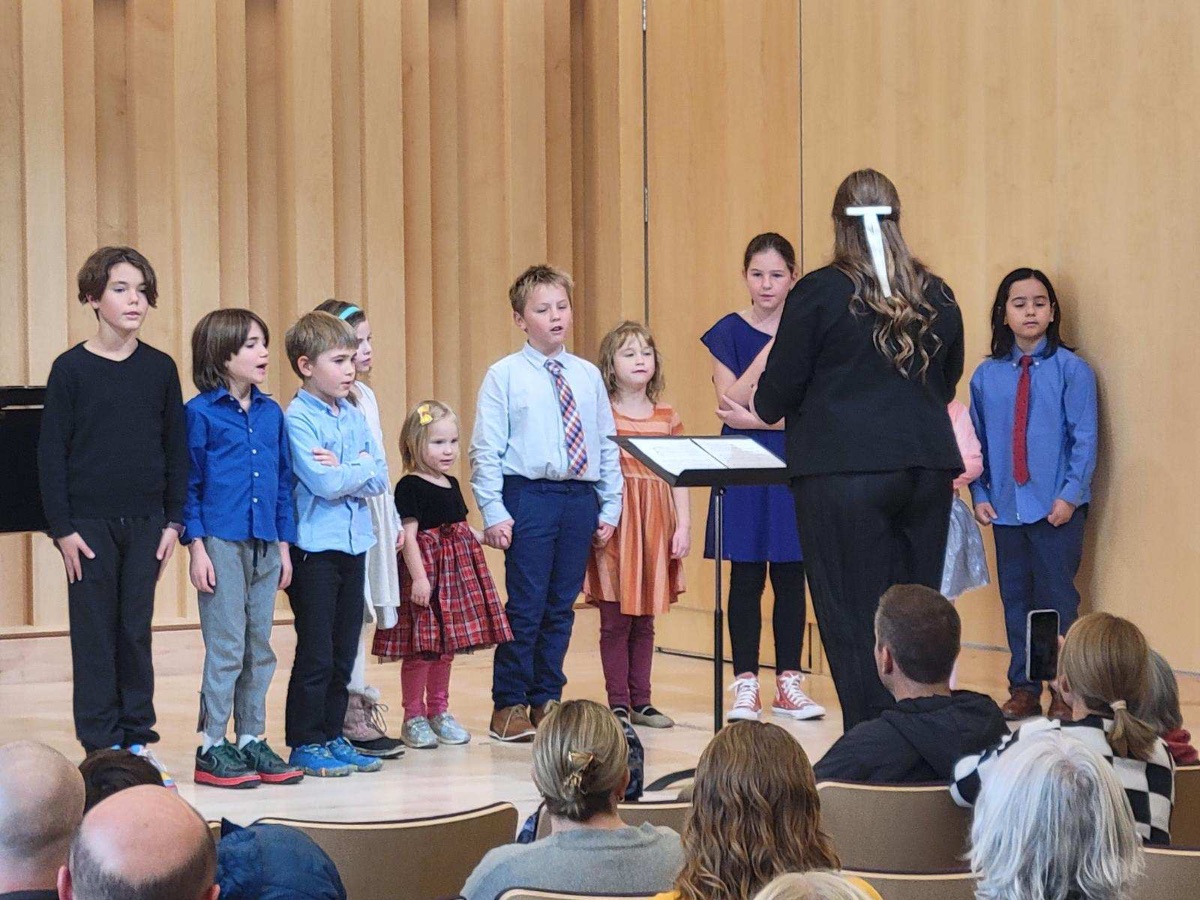It’s time for back-to-school and maybe you are wondering how to get your child started in music. When should you look into instrument lessons? How do you choose which instrument? Or which teacher?
Teachers differ in what age they will start students, and what age students can begin varies for instrument families such as winds and brass. Many string and piano teachers we speak to find starting students after age 5 is most productive. Students who start a year or two later may often catch up quickly if they have other musical training.
What other musical training, you ask? Music in the home is a great place to start. Perhaps you are able to sing songs as a family, or expose a child to a parent or sibling who practices an instrument. Another very helpful resource is a class designed for kids such as a Dalcroze Eurhythmics class that will help awaken a student’s sense of pulse, awareness of musical fundamentals, and love of music (check out our Register page for our current Eurhythmics offerings). This will aid the child’s focus, ear, and readiness to practice.
When to start an instrument is often a question for the whole family. Most teachers will require parents practice daily with their child, so it’s wise to wait until this is a realistic expectation. While studying music can help develop concentration, it’s important that your child be ready to focus through the sometimes-tedious task of repeating exercises and practice routines. It helps if the student is drawn to a particular instrument or has a strong enjoyment of music.
When choosing an instrument, some music shops will let children try various instruments (make sure to call ahead). It’s also helpful to look for an “instrument petting zoo,” which is a frequent fixture of family concerts at the symphony and other concert series for children. If you know someone who plays an instrument, you can try asking for a demonstration for your child so they can hear (and maybe try) it.
Finally, finding the right teacher is crucial. Look for someone with both playing and pedagogical credentials, and make sure you and your child have a chance to meet them before making a commitment. Most teachers will offer trial lessons to new students. Often you will also receive a studio information sheet— and make sure to come with your own questions! Music study takes commitment from all parties and it’s important everyone be on the same page from the start.
Alongside our Dalcroze Eurhythmics classes, we also have opportunities for instrument study. Check out our Group Piano Class and Violin/ Viola Instruction Program for more details. And, happy music-making!






